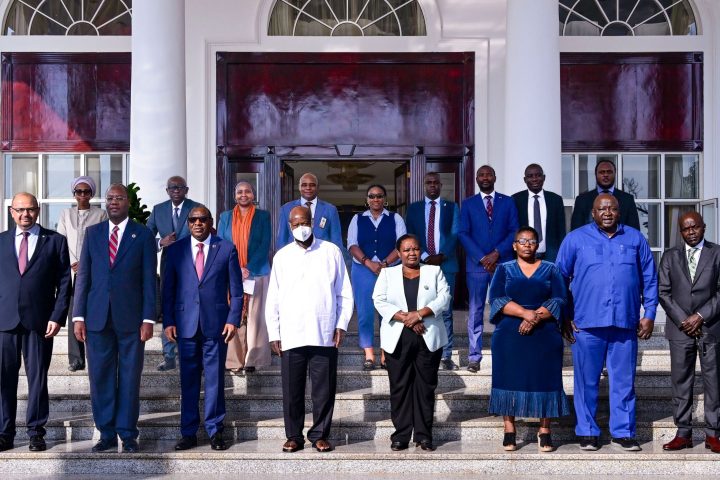The Africa Private Sector Summit (APSS) has called on African leaders to prioritise the creation of an enabling environment for trade and investment in the continent for prosperity.
Recognising the central role of democracy in facilitating people’s socioeconomic welfare, the group urged all African leaders and aspiring leaders to make it work in a way that would lead to the prosperity of the continent’s 1.3 billion people.
Join our WhatsApp ChannelThe call comes as many countries in Africa and other parts of the world prepare to hold elections this year when there will be a change of leadership.
In a statement, titled “Africa’s 2024 Elections: Opportunity to Create Enabling Business Environments,” signed by Prof. Kingsley Moghalu, Chairman, APSS Board of Directors and Advisory Board, the group said its call for leaders to make democracy work in the continent hinges on its believe that the adoption of a Charter on Private Sector Bill of Rights (PSBoR) would facilitate the emergence of an enabling environment for trade and investment to be successful in Africa.
It said the PSBoR would serve as an “accompanying instrument to the existing Regional Economic Commissions (RECs) and African Continental Free Trade Area (AfCFTA) protocols,” ratified by Governments of all African countries and the African Union.
“This will contribute to actualizing the vision of the African Union’s Agenda 2063 – The Africa We Want, thus creating prosperity for Africans through intra-African trade,” Moghalu, a former deputy governor of the Central Bank of Nigeria (CBN) added.
APSS emphasized that since AfCFTA – ratified by 47 African countries as of December 2023 – has the potential to lift 30 million people out of poverty and boost Africa’s income by $450 billion by 2035, it becomes imperative that businesses and private sector as the primary driver of wealth creation need to be empowered and enabled with a supportive environment to perform the task.
“The primary purpose of every government in Africa’s developing countries should, therefore, be to achieve this purpose of lifting the quality of life of Africa’s peoples by enabling optimal conversion of natural resources, for a marked increase in their productive wealth.”
READ ALSO: AfCFTA: Private Sector Must Be Strengthened To Unlock Africa’s Prosperity – Moghalu
The group highlighted seven key specific rights in the 24 rights contained in the APSS Charter on Private Sector Bill of Rights that all governments in Africa should adopt to support.
Some of them include “Peace, security and stability for a productive business environment; a functional legal system that guarantees the sanctity of contracts and timely resolution of commercial and trade disputes; efficient and fair tax rules that avoid multiple taxation.”
Others are “Equal treatment and equal opportunity for market competition; consultation with the private sector on policy, laws and regulation prior to enactment; timely and efficient processing of imports and cargoes; and a functional educational system that meets the skills-set demands of the private sector.”
APSS further stated that it is working, in collaboration with the Pan-African Chamber of Commerce (PACCI), AfCFTA Secretariat and the Africa Business Council (AfBC), to ensure that the goal of making the Heads of State and Government of the African Union adopt the Private Sector Bill of Rights at least by 2025 is achieved.
Victor Ezeja is a passionate journalist with seven years of experience writing on economy, politics and energy. He holds a Master's degree in Mass Communication.




















Follow Us